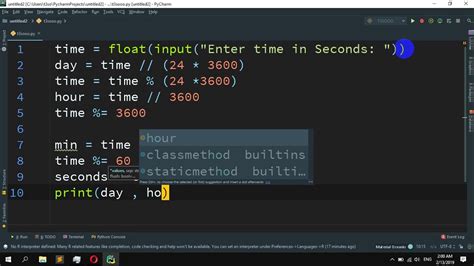The concept of time and its measurement is a fundamental aspect of our daily lives. We often find ourselves dealing with various units of time, from seconds to years, and converting between them is essential for understanding and managing our time effectively. In this article, we will explore the conversion of 1 million seconds to days, delving into the mathematical process, the context of time measurement, and providing insights into the practical applications of such conversions.
Understanding the Basics of Time Conversion

Before diving into the conversion of 1 million seconds to days, it’s crucial to understand the basic units of time and their relationships. The second is the fundamental unit of time in the International System of Units (SI), with other units such as minutes, hours, and days being derived from it. Knowing that 1 minute equals 60 seconds, 1 hour equals 60 minutes, and 1 day equals 24 hours provides the foundation for converting between these units.
Mathematical Conversion Process
To convert 1 million seconds into days, we follow a step-by-step process based on the known conversion factors. First, we convert seconds to minutes: 1,000,000 seconds / 60 seconds/minute = 16,666.67 minutes. Then, we convert minutes to hours: 16,666.67 minutes / 60 minutes/hour = 277.78 hours. Finally, we convert hours to days: 277.78 hours / 24 hours/day = 11.57 days. This calculation shows that 1 million seconds is equivalent to approximately 11.57 days.
| Unit of Time | Conversion Factor | Result |
|---|---|---|
| Seconds to Minutes | 1,000,000 seconds / 60 seconds/minute | 16,666.67 minutes |
| Minutes to Hours | 16,666.67 minutes / 60 minutes/hour | 277.78 hours |
| Hours to Days | 277.78 hours / 24 hours/day | 11.57 days |

Key Points
- 1 million seconds is equivalent to 11.57 days when converted through the standard time units.
- Understanding the conversion factors between time units is essential for accurate time management and calculation.
- The conversion process involves step-by-step division by the conversion factors for each unit of time.
- Time conversion is a fundamental skill with applications in science, technology, and everyday life.
- Accurate time measurement and conversion are critical in planning, scheduling, and executing tasks efficiently.
Practical Applications and Implications

The ability to convert between different units of time, such as from seconds to days, has numerous practical applications. In the field of computer science and programming, time measurements in seconds are common, and converting these into more understandable units like days can be crucial for project planning and deadline setting. Similarly, in scientific research, experiments often involve time measurements in seconds or milliseconds, which need to be converted into larger units for analysis and reporting.
Time Management and Scheduling
In daily life, understanding how to convert between time units can significantly improve time management and scheduling. For instance, knowing that 1 million seconds equals approximately 11.57 days can help in planning long-term projects, allocating time for tasks, and setting realistic goals. This skill is also beneficial in personal time management, allowing individuals to make the most out of their time and prioritize tasks more effectively.
Why is converting time units important in science and technology?
+Converting time units is crucial in science and technology because it allows for the accurate measurement and comparison of time intervals, which is essential for experimental design, data analysis, and result interpretation.
How can understanding time conversion improve daily time management?
+Understanding time conversion can improve daily time management by enabling individuals to allocate their time more efficiently, set realistic goals, and prioritize tasks based on the time required for their completion.
What are some common applications of time conversion in professional settings?
+Common applications of time conversion in professional settings include project planning, scheduling, scientific research, software development, and data analysis, where accurate time measurement and conversion are critical for success.
In conclusion, the conversion of 1 million seconds to days, resulting in approximately 11.57 days, is a practical demonstration of time unit conversion. This skill is foundational in understanding and managing time, with applications spanning from personal time management to professional fields like science, technology, and project planning. By grasping the concept of time conversion, individuals can better navigate the complexities of time measurement, leading to more efficient planning, execution, and analysis in various aspects of life.



